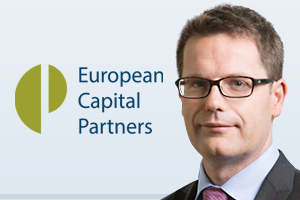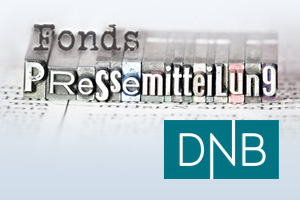
Der in den beiden Verwaltungs-Strategien SJB Substanz und SJB Stars enthaltene ECP Flagship – European Value Fund A (WKN A14YQK, ISIN LU1169207518) legte im dritten Quartal 2019 eine Konsolidierungsphase hin und generierte eine Wertentwicklung von -5,21 Prozent in Euro. Marktstratege Léon Kirch verfolgt in dem europäischen Aktienfonds eine streng an Value-Kriterien ausgerichtete, langfristig orientierte Investmentstrategie. Erfahren Sie in Kirchs FondsManager-Bericht, wie die ECP-Strategie auf die wirtschaftlichen und politischen Entwicklungen der letzten Monate reagierte. Der aktuelle Quartalsbericht (Teil 2) liefert ausführliche Informationen über die einzelnen Investment Cases im Fonds, untersucht das Marktumfeld und wagt einen Ausblick auf das kommende Handelsjahr.
Investment Cases
ABB is a new position in our strategy and we bought our first shares end of August. ABB is a leader in power and automation technologies enabling companies to improve productivity. With 145.000 people employed and business activity in 100 countries ABB is a truly global company. The business is organized in four divisions which are all double-digit margin businesses.
Ever since the 2009 crisis ABB has underperformed their industry peers on the stock market. Despite multiple restructuring efforts under multiple CEOs and significant M&A activity ABB has not been able to capitalize enough on the economic expansion of recent years. Cost overruns and very lumpy orders in their Power Grid division have been a main weakness. In December 2018 ABB announced the sell of their troubled Power Grid division. The deal will settle in first half of 2020 and the remaining business will have a leaner cost structure, higher margins, higher return on capital and lower capital intensity. ABB has historically been run with a very centralized management philosophy. This has now changed to a more decentralized setup where local business units have full responsibility for their own profit contributions to the company. Running a decentralized business model requires specific management skills and ABB has hired Mr. Rosengren from Sandvik. He has extensive industrial experience with exactly that type of business model and he is in our opinion the right person to lead ABB now.
The cash received from Power Grid divestment will be returned to shareholders through a share buyback. Combine that with 3 years of normal dividend corresponds to more than 30% of current market cap. We believe this will provide some downside protection in an otherwise cyclical company.
Marktumfeld & Ausblick
The misery for value investors continued in the third quarter: the MSCI Europe Value Index underperformed its Growth peer by 1.2% during the last 3 months alone. Being in value small caps hardly helped performance during the quarter as MSCI Europe Value Small Index underperformed its large cap growth peers by 0.68%.
While value as an investment style has been out of favor since the financial crisis, our investment style based on undervalued earning power has hold up well till Q4 2017 against the market. We believe that this is explained by our focus on cash flows and not on liquidation values, or Price to Book Values of the companies we invest in. However, the investment results of our strategy over the last 2 years have not reached the expected result. While a couple of our investment cases have been proven unsatisfying over that period
and needed to be sold (Pandora, Aryzta, NKT, Kier), we do not believe that our “batting average” had deteriorated significantly compared to what we achieved over the last 17 years we apply this investment strategy.
On the contrary, we believe we have significantly strengthened our investment process over the time period by improving our screening, our due diligence process and our valuation models. We take into account to a larger extent the current operating environment into the assessment of the fair values of our companies. In terms of portfolio construction, the portfolio has become more defensive: consumer staples and health care now represent roughly 30% of the portfolio. Liquidity risk was reduced: no small cap names is more than 3% of the portfolio and the least liquid position in the Fund (Cloetta AB ) can be fully liquidated within only 2.4 days.
We ask ourselves 2 relevant questions: 1/ Why is our portfolio trading at a record high margin of safety and 2/ What could make the situation finally change ? Our base scenario remains that we are in an environment of slowing economic momentum but certainly not under the threat of an imminent recession. The volatility seen during the month of August in financial markets shows to what extent investors are nervous of a severe economic downturn. The flight to perceived safety has taken proportions which make us wonder to what extend these safe havens are not becoming overly risky now as prices paid disconnect from economic reality. A 10 year German government bond yielding minus 0.39% is for us more a sign of capitulation by investors seeking shelter than a credible investment.
Growth stocks have also been a safe haven against economic turmoil and their valuations have reached extremes compared to value stocks. However, this could rapidly change if our base scenario is proven right and we are in for a period of slow, however positive economic growth. If we would need to nail down the underperformance of European smaller value companies over the last 18 months to one factor, it is certainly German business expectations.
So investors have been extremely sensitive to the deteriorating business sentiment in Germany and have been dumping small cap value stocks as they are being perceived as the most cyclical part of the market.
Beginning of September, we experienced a substantial rotation from momentum stocks into value stocks. According to Bloomberg, it was a once-in-a-decade stock rotation and last seen in the prefinancial crisis “quant quake”.
We believe the return into favor of the value investment style has legs. Value stocks are at an unsustainable discount to their momentum peers. One reason have been the falling bond yields. While it is still hard to see bond yields going up in the short run, they now do not have a lot of room to fall further. Central banks keep their dovish stance and the Fed has been cutting interest rates again this week. However central bankers are now much more divided on future interest rate cuts.
As our colleagues from Capital Ideas pointed out in a recent article “Life after Brexit : Will the European economy rebound ?”, there is reason to believe that 2020 will be a better year for the European economies. There are preconditions for the economic momentum to reaccelerate: first and foremost, trade tensions need to abate. Furthermore, the ECB would need to maintain its accommodative stance, loosening fiscal policies and increased government spending would help the Eurozone economies. Recent public comments by leading German politicians on the possibility of increased spending show that the government is starting to think in that direction. One argument that is often forgotten is that the weakness of the EURO is benefitting European exporters. Lastly European businesses would welcome any viable alternative to a hard Brexit, avoiding hereby further disruptions and costs in their trade relations with the UK.
It occurs to Investors, when looking at daily fluctuations, have the tendency to sometimes forget that dividends are a big component of their investment results in the equity market in the long run. For example, between 1926 to 2015, reinvested dividends explained an impressive 40% of the nominal total return of the S&P 500, a stellar 4% annual return compounding over 90 years ! ( source : Ibbotson, Standard & Poors ).


